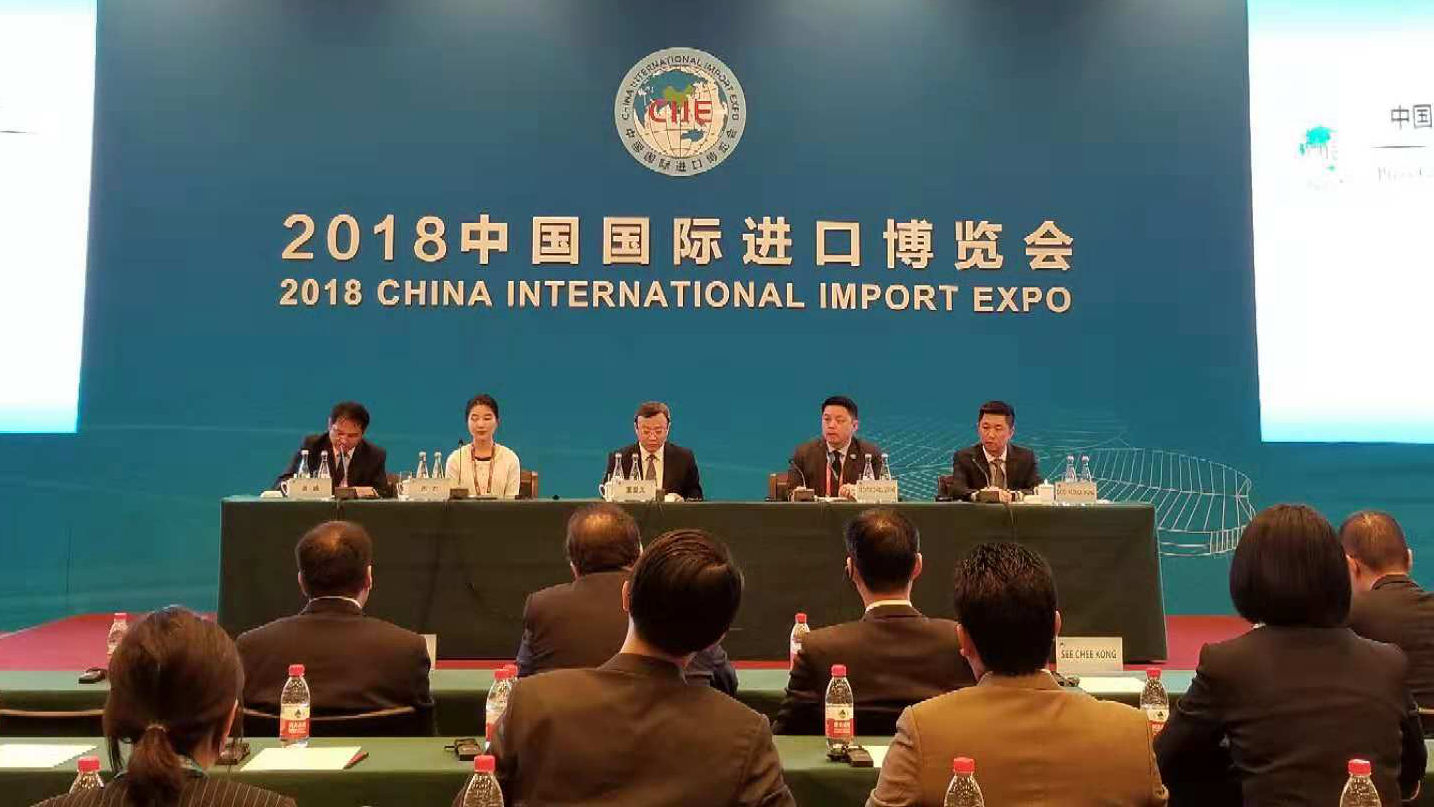
Business
23:14, 05-Nov-2018
English language Smart FTAX to help facilitate China-ASEAN trade
Updated
23:08, 08-Nov-2018
Nicholas Moore

Small and medium enterprises across China and the ASEAN region are set to benefit from the launch of a new English language version of the Smart FTAX System, a key tool in regional trade facilitation.
The launch of the English language version was announced Monday at a press conference on the sidelines of the China International Import Expo (CIIE).
Chinese Vice Minister of Commerce Wang Shouwen told the media that the development of free trade agreements (FTAs) was a national priority, describing Monday's launch of the international version of Smart FTAX as “a milestone.”
The Smart FTAX System is described as a one-stop online system that enables importers and exporters to access information regarding how to benefit from FTA policies, Most Favored Nation (MFN) tariffs and other requirements and regulations.
Wang said that many small and medium enterprises (SMEs) in China and the ASEAN region are not aware of how they can benefit from FTA preferential tariffs and policies, adding that “we have a lot of work to do to help them in this regard.”
The China-ASEAN FTA was signed in 2004, with trade between China and ASEAN economies jumping 19 percent year-on-year to 380.64 billion US dollars in the first eight months of this year, according to China's General Administration of Customs.
Wang also described how he expected the international version of Smart FTAX to boost trade between China and least developed countries (LDCs). According to Wang, the CIIE has attracted nearly 150 companies from 35 LDCs to share the benefits of China's development.
The press conference was also attended by Malaysia's Minister of International Trade and Industry Datuk Darell Leiking, who told the media that the launch of the English-version Smart FTAX System would provide clearer information to importers and exporters on rules of origin (ROO), documentation requirements and other complex regulations.
Leiking said the initiative will “provide greater assistance to SMEs to leverage and optimize” the FTA's benefits, with Smart FTAX making imports and exports more efficient.
Li Li, chief expert of the Asia-Pacific Model E-port Network Operational Center, told the press conference that while FTAs are playing a more important role in international and economic relations, they are also confusing for enterprises, with complex rules and requirements.
Li described how companies, particularly SMEs, face a lack of internal expertise on how FTAs and preferential tariffs can benefit them, citing a 2016 KPMG report which found only 23 percent of companies in the Asia Pacific region effectively utilize preferential FTA tariffs.
Li expressed her hope that the new English Smart FTAX System would bring about more benefits for SMEs and LDCs, while announcing that work was underway on more similar systems aimed at making FTA rules and regulations easier to understand and comply with.

SITEMAP
Copyright © 2018 CGTN. Beijing ICP prepared NO.16065310-3
Copyright © 2018 CGTN. Beijing ICP prepared NO.16065310-3